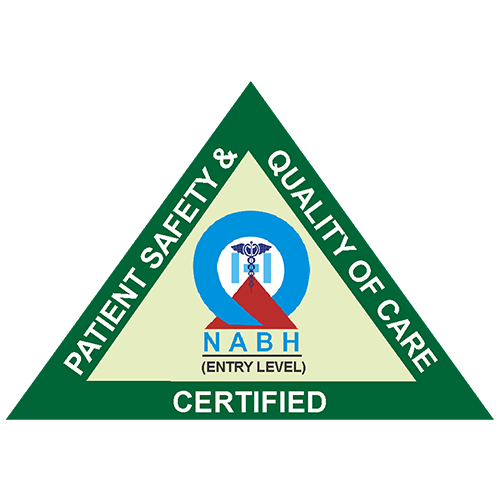Can High Blood Pressure cause kidney failure?
High blood pressure, also known as hypertension, can indeed lead to kidney failure. The kidneys and circulatory system work in tandem to maintain overall health. The kidneys play a vital role in filtering waste and excess fluids from the blood, relying on a network of blood vessels. However, when these blood vessels are damaged, the nephrons responsible for filtering the blood don’t receive adequate oxygen and nutrients to function properly. As a result, high blood pressure ranks as the second most common cause of kidney failure. Taking measures to manage and control blood pressure is crucial in safeguarding kidney health.
How does high blood pressure interrupt the normal functioning of the kidneys?
High blood pressure (hypertension) can interrupt the normal functioning of the kidneys in the following ways:
1) Damage to Blood Vessels: High blood pressure puts extra strain on the blood vessels throughout the body, including those in the kidneys. Over time, this can lead to damage and narrowing of the blood vessels in the kidneys, reducing their ability to filter blood effectively.
2) Reduced Blood Flow: The narrowed blood vessels in the kidneys can reduce the blood flow to the nephrons. As a result, the nephrons may not receive the oxygen and nutrients they need to function optimally.
3) Impaired Filtration: When the blood vessels in the kidneys become damaged, the nephrons’ filtering ability can be compromised. This may result in inadequate removal of waste products and excess fluids from the blood, leading to a buildup of toxins and fluid retention.
4) Activation of Renin-Angiotensin System: High blood pressure can trigger the activation of the renin-angiotensin-aldosterone system, which can further contribute to kidney damage. This system regulates blood pressure and fluid balance in the body.
5) Progression to Kidney Disease: Prolonged and uncontrolled high blood pressure can eventually lead to chronic kidney disease (CKD) or even kidney failure if left untreated. CKD is a progressive condition where the kidneys’ ability to function deteriorates over time.
How to protect your kidneys by managing your blood pressure?
Managing your blood pressure is crucial for protecting your kidneys and maintaining overall kidney health. Here are some general strategies to help protect your kidneys by managing your blood pressure:
1) Healthy Diet: Adopt a balanced and nutritious diet that includes fruits, vegetables, whole grains, lean proteins, and low-fat dairy products. Limit your intake of sodium (salt), saturated and trans fats, cholesterol, and added sugars. Following a healthy diet can help lower your blood pressure and reduce the strain on your kidneys.
2) Reduce Sodium Intake: Excessive sodium intake can contribute to high blood pressure. Limit your consumption of processed and packaged foods, as they often contain high levels of sodium. Instead, choose fresh, unprocessed foods, and use herbs, spices, and other flavorings to enhance the taste of your meals.
3) Maintain a Healthy Weight: Being overweight or obese increases the risk of developing high blood pressure. Aim to achieve and maintain a healthy weight through a combination of regular physical activity and a balanced diet. Consult with a healthcare professional to determine an appropriate weight management plan for you.
4) Regular Physical Activity: Engage in regular aerobic exercise, such as brisk walking, jogging, swimming, or cycling, for at least 150 minutes per week (or as advised by your healthcare professional). Regular exercise helps lower blood pressure, improve cardiovascular health, and contribute to overall well-being.
5) Limit Alcohol Consumption: Excessive alcohol consumption can raise blood pressure. If you choose to drink alcohol, do so in moderation. Limit your intake to moderate levels, which generally means up to one drink per day for women and up to two drinks per day for men.
6) Quit Smoking: Smoking damages blood vessels and raises blood pressure. Quitting smoking is beneficial for both your kidney and overall health. Seek support from healthcare professionals or smoking cessation programs to help you quit.
7) Manage Stress: Chronic stress can contribute to high blood pressure. Find healthy ways to manage stress, such as practicing relaxation techniques, engaging in hobbies, getting regular exercise, and maintaining a supportive social network.
8) Regular Monitoring: Regularly monitor your blood pressure and follow up with healthcare professionals to ensure it is within a healthy range. Be consistent with check-ups and follow any prescribed treatment plans or lifestyle modifications.
9) Take Medications as Prescribed: If your healthcare professional prescribes medication to manage your blood pressure, take it as directed. Adhere to the recommended dosage and follow-up appointments to monitor the effectiveness of the medication.
Remember, it’s essential to consult with healthcare professionals for personalized advice and guidance on managing your blood pressure and protecting your kidneys. They can provide tailored recommendations based on your specific health condition and needs.
Conclusion:
Understanding the connection between high blood pressure and kidney health is crucial for taking proactive steps to protect your kidneys. By managing your blood pressure through lifestyle modifications such as a healthy diet, regular exercise, weight management, and stress reduction, you can significantly reduce the risk of kidney damage. Additionally, regular monitoring of blood pressure, adherence to prescribed medications, and seeking professional guidance are essential for maintaining kidney health and overall well-being.
Remember, your kidneys play a vital role in filtering waste and maintaining the balance of fluids in your body. By prioritizing the management of high blood pressure, you are not only safeguarding your heart health but also protecting your precious kidneys. Your commitment to maintaining healthy blood pressure levels will go a long way in preserving the health and function of your kidneys for years to come.




